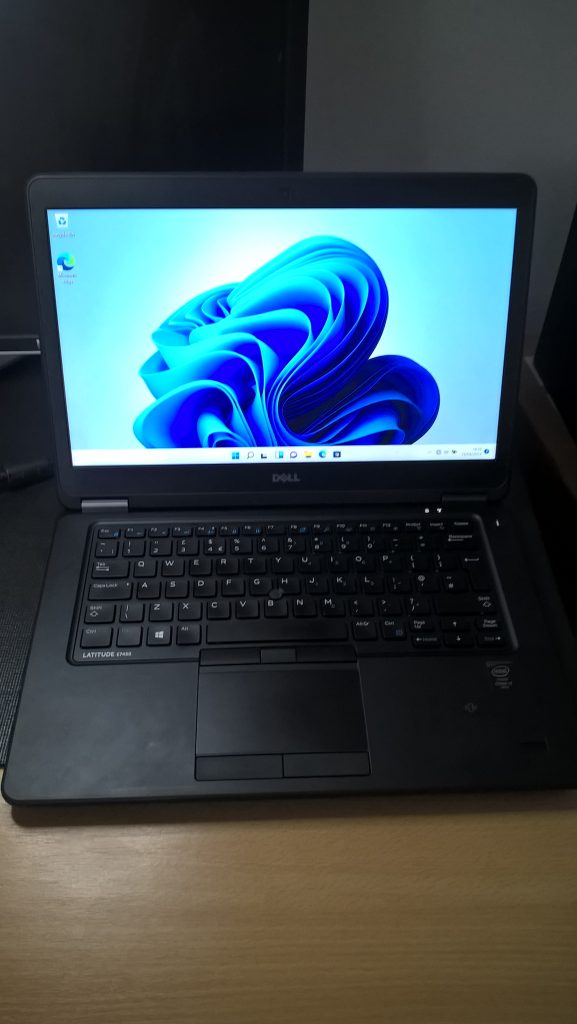The Value of a Used Gaming PC: How to Assess, Sell, and Upgrade
In the world of gaming, technology evolves rapidly, and gamers often find themselves needing to upgrade their equipment to keep up with the latest titles. If you’re pondering whether to sell your used gaming PC or hang on to it a little longer, you’re not alone. In this blog post, we will dive into the intricacies of determining the value of your used gaming rig, the considerations around selling it, whether it’s better to upgrade or buy new, and how to ensure a smooth transaction. We’ll also include insights related to pricing, trends in the gaming market, and tips for upgrading effectively.
Understanding the Gaming PC Market
The first step in gauging the value of your used gaming PC is understanding the current market. According to recent market analyses, used gaming equipment is in steady demand due to rising prices of new hardware and the general economic conditions affecting consumer spending. As more people turn to gaming as a primary form of entertainment, understanding how to price your equipment appropriately becomes essential.
Factors Influencing the Value of Used Gaming PCs
Several factors contribute to the value of a used gaming PC:
-
Age and Condition: A gaming setup that’s three years old may have diminished resale value compared to newer models, but the actual component quality can still hold significant value if they are well-maintained and in good working condition.
-
Specifications: The specific components of the PC will heavily impact its value. Higher-end CPUs, GPUs, and ample RAM can still command good prices even if they are older.
-
Market Demand: The demand for gaming PCs fluctuates. New game releases can spark interest in buying used PCs, while the release of next-gen components can depress the market.
-
ROM and Storage Options: Fast and spacious SSDs added recently can increase the value, especially for gamers who prioritize load times and storage capacity.
-
Brand Reliability: Components from well-known, reputable manufacturers generally retain better value than those from lesser-known brands.
With these elements in mind, you can begin to approximate the value of your used gaming PC.
Breakdown of Your Specifications
To get a clearer picture of what you might expect from your PC, let’s analyze the specific components listed in your original post:
-
Asus B550M-Plus TUF Gaming Motherboard: This motherboard supports the latest technology and has great durability due to its design, which can potentially retain value.
-
AMD Ryzen 7 5800X CPU: Known for its performance, especially in gaming and multitasking, this CPU can still fetch a decent price in the used market.
-
Asus Radeon RX 6700 XT 12GB GPU: This graphics card is designed for modern gaming and balances performance and value, which should positively influence the overall resale price.
-
Corsair RM750 750W 80+ Gold Power Supply: Reliable and efficient, this power supply unit (PSU) is likely to be appealing to buyers.
-
2x Corsair Vengeance 8GB DDR4-3600 RAM: While some might find 16GB to be a bit on the lower side for the latest games, it still provides adequate performance for most gaming scenarios.
-
1 Kingston NV1 1 TB M.2 NVMe SSD and 1 Kingston NV1 2 TB M.2 NVMe SSD: Having quality SSD storage is a strong selling point, especially with the focus on quick load times in gaming.
-
Vision X2 Black Silent Case: A good case can enhance the aesthetic and temperature management of a PC, which is valued by many gamers and enthusiasts.
Pricing Your Used Gaming PC
When it comes to figuring out how much to charge for your used gaming PC, you can start by examining current listings for similar systems on platforms like eBay, Craigslist, and dedicated gaming forums. A general guideline is to list the total cost of your components when new, adjust for depreciation (around 20-30% for each year is common), and then compare it to the offerings you see in the market.
For instance, if your gaming rig components originally cost around $1,500:
- Secondhand Price Calculation:
- After 3.5 years, applying a 25% depreciation per year gives you around $800-$900 as a potential starting point.
You can adjust based on the condition and whether you include peripherals or extra Software licenses. For example, if you are selling it to your brother, you might offer a special discount, ensuring that it is a win-win for both parties.
Should You Upgrade or Buy New?
Your instinct that upgrading could lead to buying a new PC instead is often shared. The decision comes down to a few considerations.
Performance Requirements
Modern games often demand hardware upgrades that may not make financial sense individually:
-
CPU Compatibility: If you find that your CPU doesn’t work with newer motherboards, upgrading it may mean swapping out your motherboard as well. This can also necessitate new RAM, as some new motherboards only support DDR5, leaving you requiring an entire rebuild.
-
GPU Limitations: The GPU is usually the most critical component for gaming performance. If your graphics card can no longer handle newer titles at acceptable frame rates, investing in a new, more powerful GPU can greatly enhance the gaming experience provided other components are compatible.
Financial Considerations
If you’re conscious of your budget, selling your used PC and using that money to scale up to a better system might be a more viable option. Occasionally, higher-tier budget PCs can outperform the cost of new components if carefully selected.
Selling to Your Brother: Ethical Considerations
Selling your used gaming PC to your brother might seem straightforward, but it does come with its responsibility. Here are a few points to think about:
-
Transparency: Be clear about the age and condition of the components. Providing him with full information about expected performance in various games could help him make an informed decision.
-
Pricing: Since this is family, being unreasonable on price may breed resentment. Offering a fair deal that both of you feel good about will maintain a healthy relationship.
-
Support: Consider whether you’ll be able to offer him support for any issues he may face with the hardware. Being available for troubleshooting could ease the transition and improve his gaming experience.
How to Ensure a Smooth Transaction
When you are ready to sell your gaming PC, follow these steps to ensure the process goes smoothly:
-
Clean Your PC: Physically clean your machine before showing it to potential buyers, removing dust and tidying cables.
-
Market It: Take good pictures and craft a clear, detailed listing describing your PC’s specs, usage history, and any included extras.
-
Be Honest: Specify any known issues or limitations. Transparency will build trust with the buyer.
-
Prepare for Questions: Be ready to answer any queries about the PC’s performance, upgrades, and maintenance history.
-
Secure Payment: Arrange for secure payment options to avoid issues later on.
-
Transferable Items: If you have licenses for Software, consider whether you can transfer them, enhancing the deal.
Conclusion
Determining the value of your used gaming PC is a multifaceted process that requires an understanding of the market, component values, and personal circumstances. Engaging in fair transactions, especially when dealing with family, and weighing the benefits of selling versus upgrading can lead you to make the right choice for your gaming needs. Whether you end up selling your PC to your brother or upgrading your components, approach the situation with careful consideration and honesty, and it can ultimately lead to a rewarding outcome for both you and your family. Happy gaming!
Share this content:




Response to Used Gaming PC Value
Great article! You’ve done a fantastic job at outlining the considerations when determining the value of a used gaming PC. I’d like to add a few insights based on my experience that could further enhance the discussion.
Extended Lifespan of Components
It’s important to mention that certain components can continue to hold value and perform well even in older rigs. For example, if you’re dealing with a high-quality power supply, like the Corsair RM750 you listed, it can often last through multiple builds, making it an attractive feature for potential buyers seeking reliability.
Software Licenses
Regarding Software licenses, consider creating a package deal. If your PC has a licensed copy of Windows or popular gaming programs, this can significantly enhance its resale value. Buyers appreciate being able to jump straight into gaming without needing to purchase additional Software.
Benchmarking and Performance Testing
Including benchmark results for your PC using popular testing tools can help potential buyers gauge its performance. Consider running benchmarks for games commonly sought after, such as Cyberpunk 2077 or Call of Duty. This transparency can build trust and make your listing more appealing.
Warranty Transferability
If any components are still under warranty, highlighting